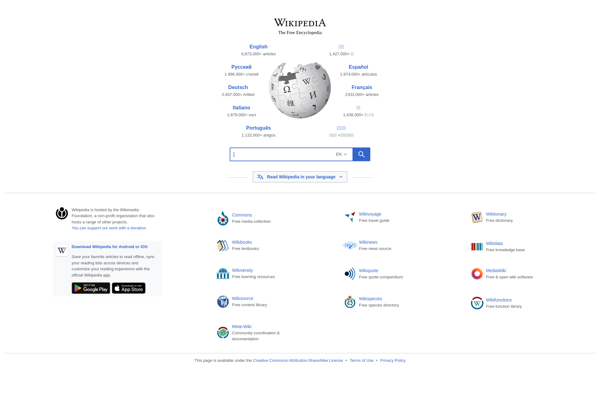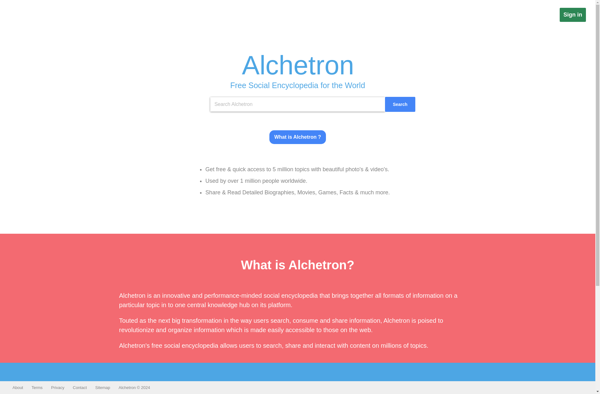Encyclopedia of Earth

Encyclopedia of Earth: Authority on Earth Science & Policy
The Encyclopedia of Earth is an online reference about the Earth, its natural environments, and their interaction with society. It provides authoritative, yet accessible information on science, policy, and environmental topics.
What is Encyclopedia of Earth?
The Encyclopedia of Earth is an online reference work published by the Encyclopedia of Life Support Systems (EOLSS), which is an organization that compiles various online encyclopedias related to global sustainability issues. The Encyclopedia of Earth specifically focuses on providing information about the Earth's natural environments and systems, their interactions with human civilization, and policies related to environmental issues.
Some key details about the Encyclopedia of Earth:
- It launched in 2007 with the goal to provide an online source for authoritative and up-to-date information on environmental science, policy, and issues written for the general public.
- It covers topics such as ecosystems, biodiversity, energy, sustainability, natural resources, geography, geoscience, climate, human systems and interactions, and more.
- The writing and editing process involves teams of scholars, scientists, and policy experts who summarize the peer-reviewed technical literature into articles accessible for non-experts.
- As of 2022, it contained over 1,400 articles vetted through this expert peer review process.
- The encyclopedia operates through partnerships with various environmental organizations like the National Council for Science and Environment and receives grant funding to support its operations.
- All content is available for free and released under Creative Commons licensing to allow for reprinting and reuse.
Overall, the Encyclopedia of Earth aims to make authoritative environmental information understandable to the general public in order to educate people on Earth systems, sustainability issues, and policy options around critical global challenges.
Encyclopedia of Earth Features
Features
- Contains over 4,000 articles on environmental topics
- Covers topics related to the environment and sustainability
- Includes articles on climate change, ecosystems, energy, pollution, and more
- Has articles written and reviewed by experts in their fields
- Contains multimedia including images, videos, and animations
- Articles are written for the general public in an accessible way
- Users can browse articles alphabetically or by category and subtopics
- Has an interactive world map to explore articles about different geographic regions
Pricing
- Free
Pros
Cons
Official Links
Reviews & Ratings
Login to ReviewThe Best Encyclopedia of Earth Alternatives
Top Education & Reference and Encyclopedias and other similar apps like Encyclopedia of Earth
Here are some alternatives to Encyclopedia of Earth:
Suggest an alternative ❐Wikipedia

Oppia

Encyclopædia Britannica

WikiSpooks.com

Alchetron

WikiIndex

Lunyr

Wikiless
